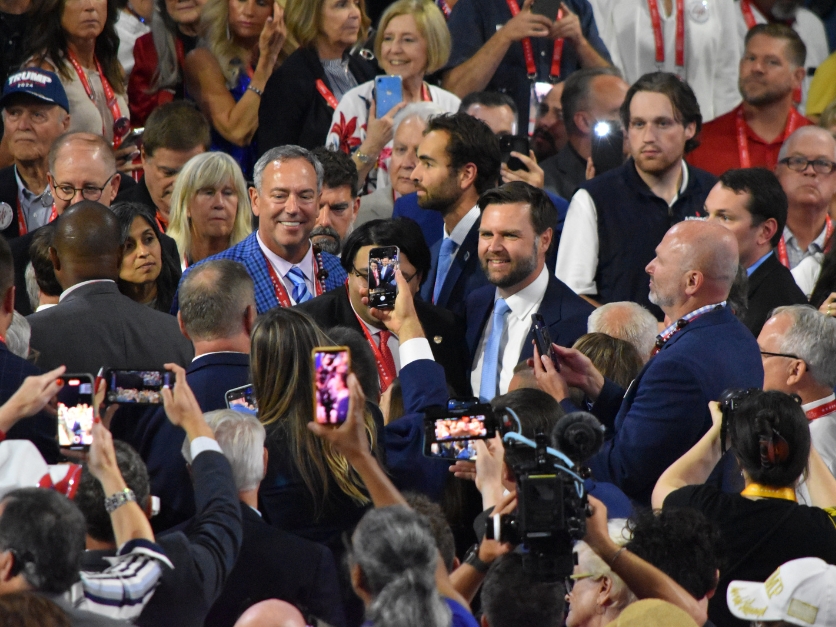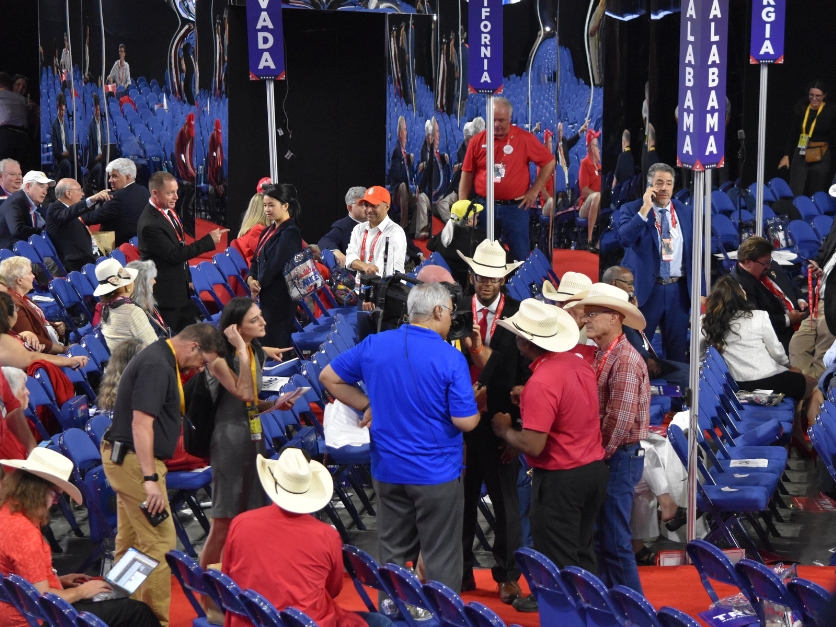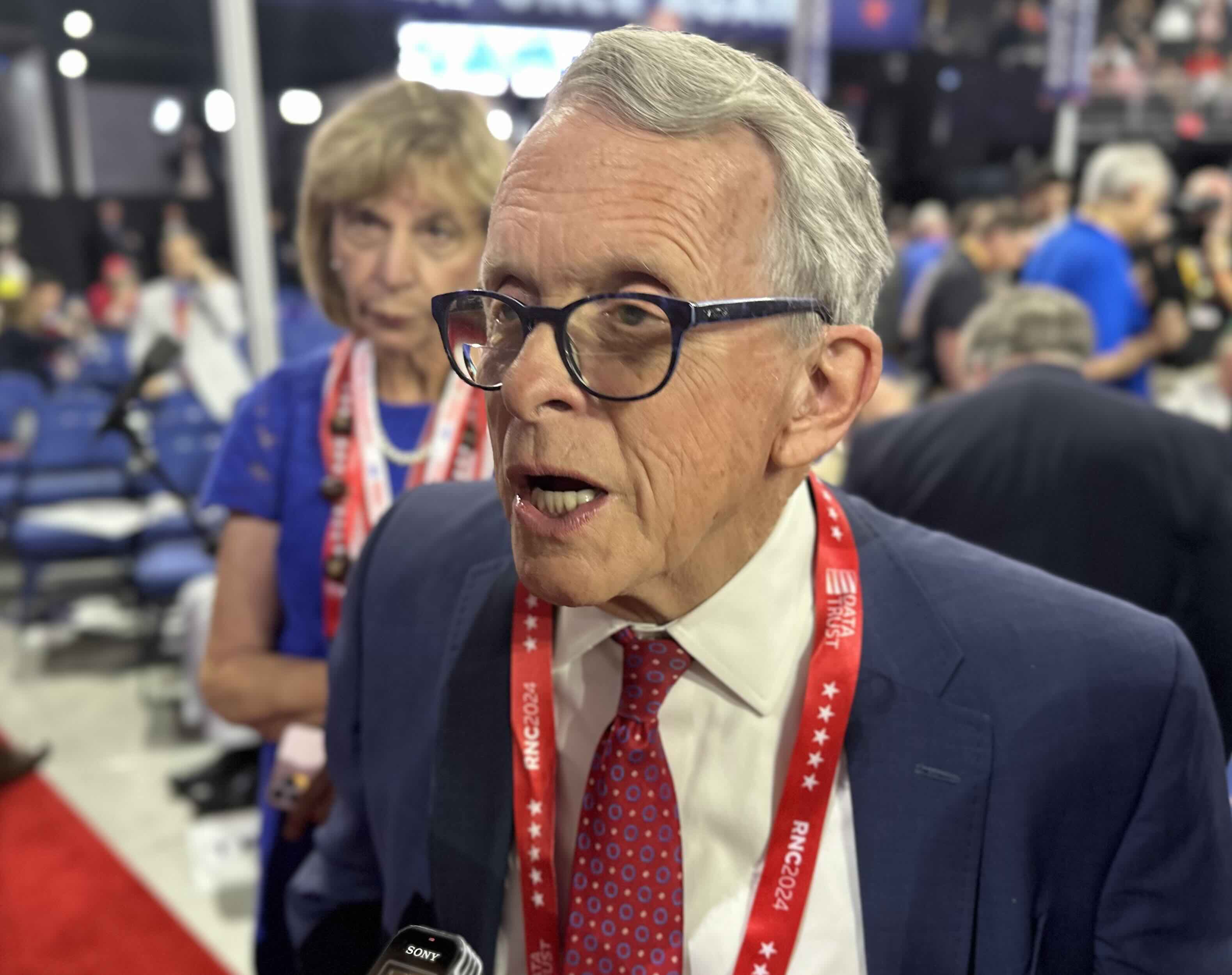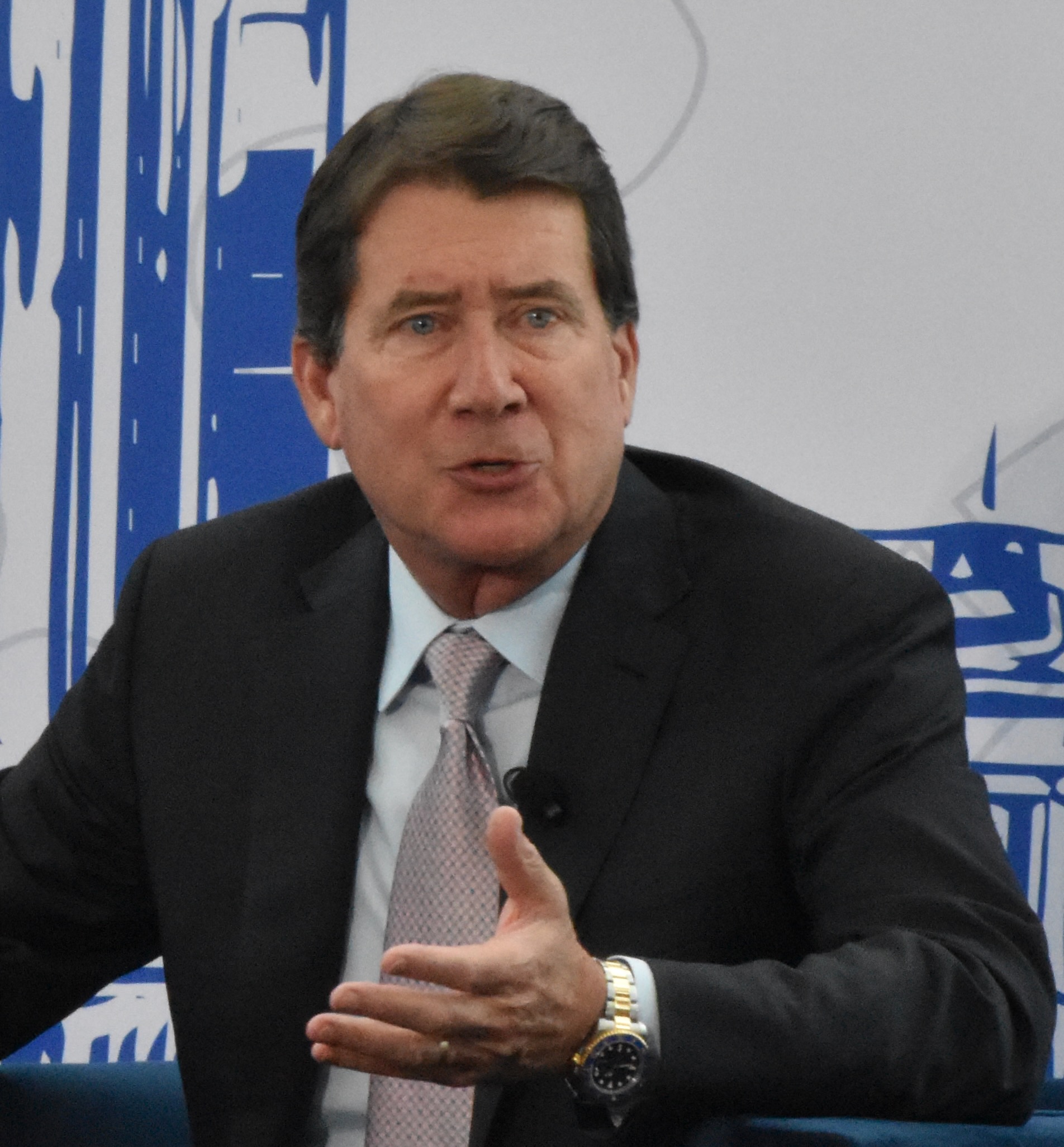Former President Donald Trump’s selection of an Ivy League-educated populist, Ohio Sen. JD Vance, affirms the ongoing protectionist shift of the GOP, raising the stakes for farmers who would bear the brunt of any trade wars that might surface in a Trump-Vance administration.
Trump has called for imposing across-the-board tariffs on imported products while increasing already steep duties on China, proposals reflected in the party platform being adopted this week at the Republican National Convention in Milwaukee.
“I’m concerned about a trade war,” House Agriculture Committee Chairman “GT” Thompson, R-Pa., said in an interview with Agri-Pulse at the GOP convention after delegates affirmed Vance’s nomination by acclamation.
Thompson said he intends to talk to Vance and Trump and urge them not to make agriculture “the low-hanging fruit for countervailing tariffs that other countries put in place … I believe that tariffs can be a great tool, but we should make sure that agriculture in particular” isn’t hurt in a trade war.
Trump used USDA’s Commodity Credit Corporation to pay farmers $23 billion in compensation for the trade wars he fought in 2018, and Thompson indicated he would support another bailout if farmers are hit by retaliatory tariffs again. However, he pushed for a provision in his committee’s farm bill that would suspend USDA’s ability to use the CCC for such payments. If that provision were to become law, Congress would have to authorize a new bailout directly.
 Sen. JD Vance, Donald Trump's running mate, greeting the crowd after his nomination to serve as the vice presidential nominee was publicly announced in the Fiserv Forum in Milwaukee. (Photo: Lydia Johnson)
Sen. JD Vance, Donald Trump's running mate, greeting the crowd after his nomination to serve as the vice presidential nominee was publicly announced in the Fiserv Forum in Milwaukee. (Photo: Lydia Johnson) Thompson said his priority will be trying to prevent a new round of retaliation against U.S. agriculture. “I don't want there to be a trade war, so [I will] work hard to make sure that doesn't happen,” he said.
Kip Tom, an Indiana farmer and former ambassador to the UN food and agriculture agencies under Trump, told Agri-Pulse ahead of the Vance selection that the prospect of new trade disruptions was a major concern of farmers.
“Believe me, this is a hot topic no matter where you go,” he said. Speaking of Trump’s trade policy, Tom said, “I think it's all about fair trade as much as it is free trade.” Raising tariffs “would have a significant impact, probably on our trade with China. At the same time, we need to recognize that China is not playing on a level playing field with us.”
Tom also suggested that concerns about the federal deficit may make it harder to win another bailout for farmers.
“We know what happened last time. We dipped into the CCC and tried to make it right. But if we're trying to cut the federal deficit and put these trade tariffs on, [it is] going to get more complicated,” he said.
Leslie Heinemann, a retired dentist who farms about 600 acres of corn and soybeans and is the Republican whip in the South Dakota House of Representatives, said in an interview at the GOP convention that Trump’s trade war wound up benefitting farmers, because of the Market Facilitation Program, which paid producers of commodities directly affected by retaliation.
“He reinvested with the farmers, and I think the farming community was very excited about ... the benefit of having shared in those tariffs,” Heinemann said, adding that “if Trump does what he did before, it will help the farming community.”
It's easy to be "in the know" about agriculture news from coast to coast! Sign up for a FREE month of Agri-Pulse news. Simply click here.
The tariff revenue wasn’t actually transferred to farmers through the MFP. USDA is reimbursed by Congress for CCC spending through appropriations. But a 2020 analysis by the Council of Foreign Relations estimated that the farm bailout amounted to 92% of tariff revenue collected. Texas delegates being interviewed on the floor at the RNC.
Texas delegates being interviewed on the floor at the RNC.
To be sure, President Joe Biden hasn’t reduced Trump’s duties on China. In fact, he announced in May that he was increasing tariffs on a range of products, from steel and aluminum to semiconductors and medical products. Biden also hasn’t pursued any new multilateral free trade agreements that could lower tariffs on U.S. exports.
But Biden doesn’t support Trump’s proposal for an across-the-board tariff on imports. In a recent analysis, the White House Council of Economic Advisers said across-the-board tariffs would provoke retaliation from affected countries and harm the U.S. economy.
Such a tariff would "raise the prices of imported consumption goods and imported inputs used to produce output that is sold both domestically and internationally," the analysis said, citing another analysis that estimated the inflation rate would increase by 0.75 percentage point.
Scott Lincicome, vice president for general economics and trade at the Cato Institute, a free-market oriented think tank, said U.S. trade law gives the president broad authority to apply tariffs beyond statutes Trump has already used.
Lincicome sees the International Emergency Economic Powers Act, which Richard Nixon to apply broad tariffs on imports, as a particularly powerful tool Trump could use in a second term.
And Congress can’t rein in that authority without two-thirds majorities necessary to override a presidential veto, noted Lincicome, who advised John McCain’s 2008 presidential campaign on trade policy.
“The fact is that Republicans today, at least publicly, they love low taxes except when they're tariffs, and that's the party line right now,” Lincicome said.
There is little overt opposition to Trump’s protectionist policy at the GOP convention or in the party.
“What we have right now is a situation that is not reciprocal and not fair, and where that exists we’ve got to fix it,” said Sen. Bill Hagerty, a Tennessee Republican who was ambassador to Japan during the Trump administration.
Ohio Gov. Mike DeWine, a former senator himself, said Vance’s selection reflects a turn in the GOP’s trade philosophy.
“This is a balance that we always have to work on. You know, we don't want to get run over by other countries. But we want to be able to trade, we want to sell our products, and agricultural products are obviously very important," DeWine said.
He went on, “It’s not just Sen. Vance. It’s not just President Trump. We saw this sped up during President Trump’s first run for the presidency the first time. There's been more of a feeling among certainly Ohioans that we do need to be careful. We need to be tough. I think that's a stronger feeling today.
“So, it's not just the candidates, it's where the people are, too.“
 Ohio Gov. Mike DeWine The 39-year-old Vance, who rose to fame with his 2016 book “Hillbilly Elegy” and the Netflix movie based on it, is as articulate a spokesman for Trump’s protectionist policy as Trump could have found, especially when it comes to China.
Ohio Gov. Mike DeWine The 39-year-old Vance, who rose to fame with his 2016 book “Hillbilly Elegy” and the Netflix movie based on it, is as articulate a spokesman for Trump’s protectionist policy as Trump could have found, especially when it comes to China.
Jeff Kaufmann, an Iowa livestock producer who chairs his state's Republican Party, said Vance represented a “new generation” of Trump's “conservative populism,” which he said “has served America’s farmers very, very well.”
“I certainly agree that we need to apply some broad-based tariffs, especially on goods coming in from China and not just solar panels and EV stuff. We need to protect American industries from all of the competition,” Vance said in an interview with CBS News in May.
Vance also said that it will take time to realize the benefits of raising tariffs. “The American heartland wasn't destroyed in four years, it's not gonna be rebuilt in four years. But you really need to double down on this policy of bringing good jobs back to the heartland and, more importantly, making stuff in America. We have to be self-reliant as a country,” he said.
Of interest to farmers, Vance also criticizes businesses that hire undocumented immigrants to save labor costs.
In an interview with the New York Times columnist Ross Douthat, he said that “the economics profession is fundamentally wrong about both immigration and about tariffs. Yes, tariffs can apply upward pricing pressure on various things — though I think it’s massively overstated — but when you are forced to do more with your domestic labor force, you have all of these positive dynamic effects.”
 Sen. Bill Hagerty, R-Tenn.Vance went on, “What is not good is you replace the McDonald’s worker from Middletown, Ohio, who makes $17 an hour with an immigrant who makes $15 an hour. And that is, I think, the main thrust of elite liberalism, whether people acknowledge it or not.”
Sen. Bill Hagerty, R-Tenn.Vance went on, “What is not good is you replace the McDonald’s worker from Middletown, Ohio, who makes $17 an hour with an immigrant who makes $15 an hour. And that is, I think, the main thrust of elite liberalism, whether people acknowledge it or not.”
Defenders of Trump’s trade policy say his willingness to negotiate bilateral trade deals can help U.S. farmers build new markets.
The Trump administration negotiated an agreement with Japan after Trump pulled the United States out of the Trans-Pacific Partnership negotiated during the Obama administration.
Beef producers were the biggest winners in the deal but Japan also eliminated all tariffs for commodities like almonds, blueberries, walnuts, sweet corn, sorghum and broccoli. The country also began phasing out tariffs on pork, wine, cheese, whey, ethanol and oranges and erecting new quotas for U.S. wheat, malt, potato starch, glucose, fructose, corn starch and insulin.
“We opened up agricultural markets, $7 to $8 billion more commerce for American farmers,” said Hagerty. “That's the type of model I hope we'll see moving forward, more bilateral agreements.”
For more news go to Agri-Pulse.com.


